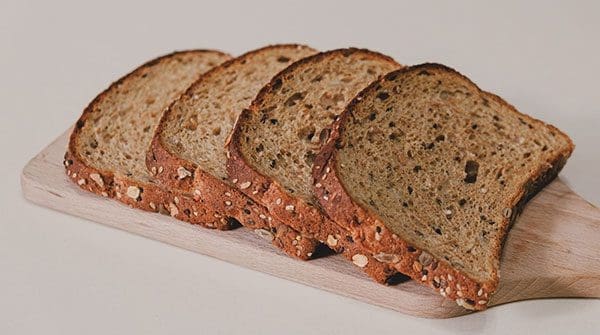Grupo Bimbo confession triggers renewed scrutiny of food industry practices
 For the first time in nearly six years, notable progress has been observed in the investigation of price-fixing in the bread market, initiated in 2015.
For the first time in nearly six years, notable progress has been observed in the investigation of price-fixing in the bread market, initiated in 2015.
However, it is noteworthy that this advancement is not attributed to the efforts of the Competition Bureau. Canada Bread, currently owned by Mexico-based Grupo Bimbo, has recently acknowledged its culpability in two separate incidents of price-fixing, occurring in 2007 and 2011.
Consequently, the company has agreed to pay a fine of $50 million, marking the highest penalty ever imposed in Canada for price-fixing. It is a lot of money.
Previously, Loblaws, together with Weston Bakeries, confessed their involvement in the bread scandal, with Loblaws extending an apology to all Canadians in the form of a $25 gift card. That was in 2017. Since then, no significant developments have transpired. That is, until now.
 Photo by Young Shih |
| Related Stories |
| The Greedflation campaign needs to end. Now
|
| The Competition Bureau is not doing its job
|
| Delving into the science behind the Buttergate controversy
|
While Grupo Bimbo has assumed complete responsibility for its role in the bread price-fixing scheme, it is also contemplating various legal actions against Maple Leaf Foods. As detailed in Grupo Bimbo’s agreed statement of facts filed in the Superior Court, Maple Leaf Foods, which sold Canada Bread in 2014, failed to disclose any information regarding the alleged bread price-fixing scandal. It is worth noting that 2014 was the year preceding Loblaws’ disclosure to the Bureau and its subsequent attainment of immunity.
Consequently, numerous executives, including Michael McCain himself, who were directly or indirectly associated with Canada Bread during that time, remain under investigation. Hence, McCain, who has announced his resignation as CEO of Maple Leaf Foods, is likely to face inquiries in upcoming days.
While the blame for inflated food prices in recent months has been unjustifiably directed at grocers and the food industry, the bread story is different. Food inflation is a global phenomenon that affects the entire food ecosystem. However, the Canadian food industry exhibits a culture that inherently justifies collusive thinking and unsound price co-ordination.
For example, the presence of “black-out periods,” during which all grocers collectively request vendors to refrain from raising wholesale prices for three months, has been normalized for an extended period and requires attention. The food industry has seemingly evaded accountability for these practices for a considerable time.
The substantial fine imposed on Canada Bread serves as a reminder to all Canadians that the Competition Bureau still has unresolved matters. Beyond confessions, investigations appear to yield no significant outcomes.
Ironically, it is a Mexican-owned company, Grupo Bimbo, that has assumed the responsibility of rectifying the misconduct within Canada’s food industry. Among the entities involved in the investigation, Grupo Bimbo stands as the sole foreign-owned company, thus signifying the need for Canada to rectify its shortcomings. However, one can question why it took almost six years after Loblaw’s admission before the Mexican group decided to admit guilt.
According to the Competition Bureau, the investigation remains ongoing, contributing to a burdensome and perplexing journey for Canadians. Four major grocers, namely Walmart, Sobeys, Metro, and Giant Tiger, have consistently denied any involvement in the scandal. However, Grupo Bimbo’s recent decision to pay a substantial fine will inevitably intensify the pressure these companies face. Merely relying on plausible deniability may no longer suffice.
In essence, Grupo Bimbo is commendably taking appropriate measures. As a non-grocer, it lacked the ability to provide gift cards, as Loblaws did. The bread scheme is estimated to have cost each Canadian family an excess of $371.80 between 2001 and 2015. Nevertheless, the company is acknowledging the wrongful occurrences that transpired in Canada over a span of 14 years.
It is imperative to emphasize the timing of Canada Bread’s admission, which coincides with a significant surge in bread prices. In fact, bakery products, including produce, are currently major contributors to the escalation of food inflation in Canada.
Certain bakery items such as pita and flatbread have experienced a remarkable 24 percent increase compared to the previous year, representing one of the most substantial hikes observed in the past 12 months.
Consequently, Canadians are justified in questioning whether there may be ulterior motives at play. Lingering doubts are bound to endure as an indelible consequence of the bread story.
Dr. Sylvain Charlebois is senior director of the agri-food analytics lab and a professor in food distribution and policy at Dalhousie University.
For interview requests, click here.
The opinions expressed by our columnists and contributors are theirs alone and do not inherently or expressly reflect the views of our publication.
© Troy Media
Troy Media is an editorial content provider to media outlets and its own hosted community news outlets across Canada.

